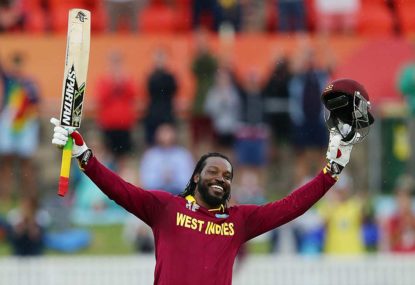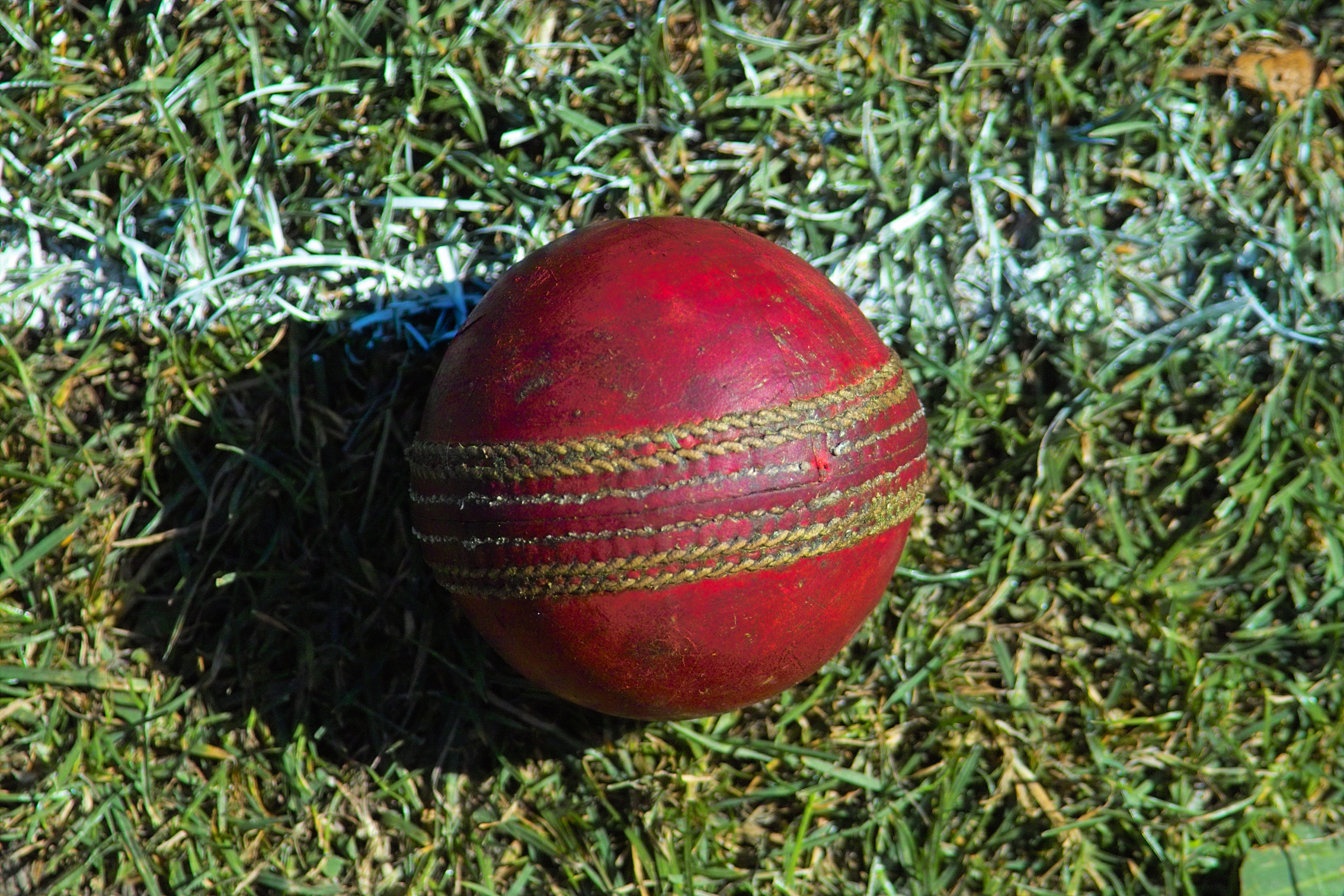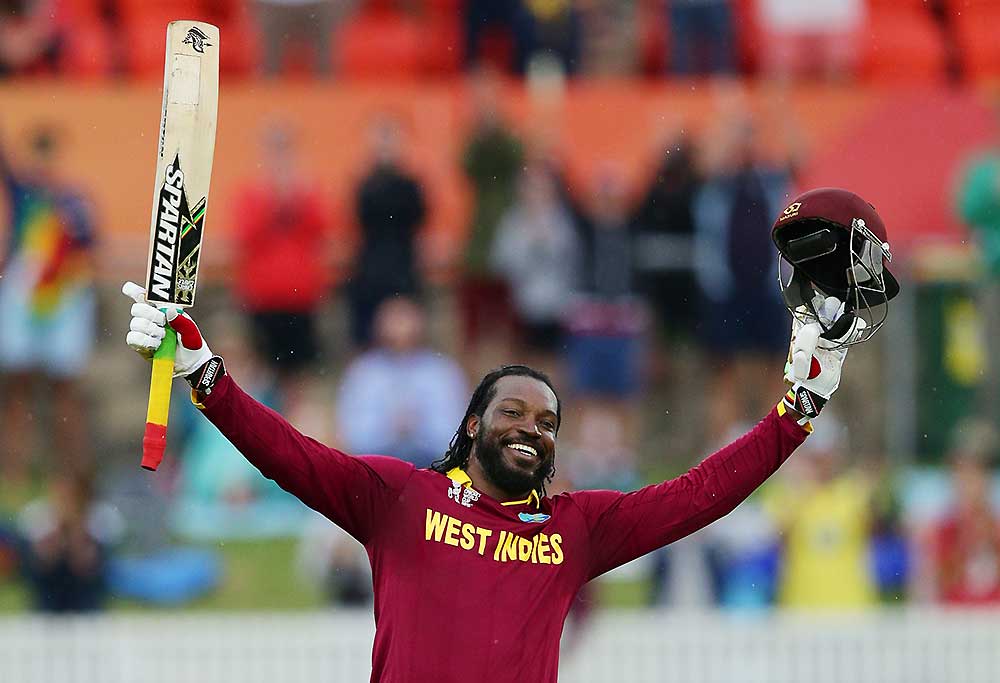WATCH: Freddy Flintoff's son dominates County 2nds game batting exactly like his dad
Check out some of the short-arm pull shots from Rocky Flintoff!

Perhaps the most important tournament in the history of cricket is being held on Sunday.
With the ICC’s ridiculous decision – made on the insistence of India and Australia and with England’s backing – to reduce the World Cup to fewer teams than there are full members, it is perhaps melodramatic, but not inconceivable, to say that the end of two Test-playing nations is a plausible outcome.
Zimbabwe will be hosting the tournament after Bangladesh automatically qualified as one of the top eight according to the one-day rankings. They are clearly a nation whose continuing existence as a top-tier country is in peril.
Already they are winding back hosting Test matches and are raising doubts about the ability to host even large nations in shorter formats. A two-Test series against Australia has already, though unconfirmed publicly, been reduced to a limited-overs tri-series, and Even that might not go ahead.
If Zimbabwe do not make the World Cup, their situation will be even more dire. There is speculation a number of players may quit the national team or the sport altogether should they not qualify.
Making a World Cup provides money of itself and incentive to play games in preparation. Of course Zimbabwe have been back in the Test-playing ranks for only a short time after a hiatus, but next time it may be permanent without the willingness of the large nations to aid the game.

The West Indies situation is not as desperate – yet. The risk with the West Indies is not just that they may drop from the top tier of nations; the bigger risk is the possible break-up of the cricketing nation into its constituent nations.
No nation has been as hard hit by the rise of T20 and in particular the Indian Premier League. With Caribbean cricket already in decline, the rise of T20 has in some ways provided a lifeline, but it is one fraught with peril.
The West Indies 50-over and Test side have struggled badly, but they have won T20 world titles, and the men and women are reigning champions of the format. That last point may be what keeps the West Indies together.
Ireland and Afghanistan also need to qualify in order to pay for their rise into Test ranks. There are twelve Test nations but just ten World Cup qualifiers. The ICC decision – made by India and Australia and with England’s backing, with everyone else too scared to complain – risks reducing the game to two formats.
All this means who qualifies is incredibly important. Afghanistan and West Indies would be favourite in most conditions, but at home Zimbabwe might be able to scrape in.
The best chance outside the Test nations would appear to be the Netherlands, who may finish ahead of Ireland. For others, such as Nepal, making it this far is a sign of progress in a world where the ICC seem determined to ensure everyone outside the richest few regress.
The qualifiers will be played in two groups of five followed a super six. The top two then qualify for the World Cup and play a final for prize money and to determine seedings.
[latest_videos_strip category=”cricket” name=”Cricket”]
Ireland will be relying on their ageing stars to get them into another World Cup. They need the highly experienced Ed Joyce and William Porterfield to fire.
Results in recent times against the lower level Test nations have not been great, but they are still capable against Associate ranks. The bowling appears a bit thin, and whether George Dockerill can improve over his form of the last year may decide their chances of doing anything of substance in the super six stage.
The Netherlands are perennially near or in world cups and are current World Cricket League (WCL) Championship holders. The 37-year-old Ryan ten Doeschate has considerable T20 and list A experience, including two world cup centuries in 2011. He is obviously coming to the end of his career, but he still remains the great Dutch hope for this tournament.
If the Dutch could squeeze out the Irish and their game on the opening day, it could prove decisive given results carry over to the super six stage. Of Australian interest is Ben Cooper, brother of former Dutch international and current South Australia player Tom, who is in the squad.
Papua New Guinea arrive as virtual unknowns at this level. Their first foray into the WCL Championship proved reasonably successful, but making it to the super six stage would be a major achievement in this company.
United Arab Emirates also look like just making up the numbers, having made it this far from WCL Division 2.
The West Indies are the team with history and pedigree and with perhaps the most to lose. They actually have Chris Gayle playing, which, while not exactly a rarity, is not a certainty either.
The squad does not look good by international standards, but it looks strong enough for this level. Gayle had horrid ODI and international T20 series in New Zealand and will be joined by Marlon Samuels as those expected to do the bulk of the scoring.
Carlos Brathwaite will be required to pinch-hit. Jason Holder gives all-round class and is a solid captain. Kemar Roach and Devendra Bishoo provides good bowling support.
The Windies should easily win the group, and if they go unbeaten, they could take an advantage into the super sixes. The downside is they will be relying almost solely on age 30-plus, largely 35-plus, players.

(AP Photo/Rob Griffith)
Afghanistan start as favourites for qualification and winning the final after coming off a 4-1 series win over Zimbabwe in the UAE. While the batting looks a little thin, the bowling is truly World Cup quality.
Rashid Khan and Mohammad Nabi, known to Australians mostly through the BBL, make a formidable spin pairing. Of the quicks who were genuinely quick in the 2015 World Cup only Shapoor Zadran survives, but he will be a handful against all but the best teams in his tournament. Runs are the query – they must come from somewhere.
Hong Kong are a surprise entry for those of us who don’t follow Associate cricket closely. They have recently had some wins over Papua New Guinea in both list A and first-class games. The mix of ages shows promise for the future, but the present does not look likely to produce a World Cup appearance.
Nepal were runners-up in WCL Division 2, scraping in on the last ball of the last group game ahead of Canada. Simply being here is a big move up for them. They have made the T20 championships before but were knocked out before the big teams began.
The game is strong, and they may be a team of the future. Right now, though, unless Paras Khadka can produce some magic, it is hard to see the mountain nation doing much. The 17-year-old Sandeep Lamichhane may be one for the future – the leg-spinner had good returns a level down from this.
Scotland, like the Netherlands, are always thereabouts in these tournaments. Veteran Kyle Coetzer has the pedigree but is coming off injury and has not been performing in the warm-up games.
Watch out for Stuart Whittingham. He hasn’t represented Scotland much as yet but did take eight wickets against Ireland in the first-class Intercontinental Cup and has seven wickets in his four ODIs, two of which were also against Ireland.
Zimbabwe must fire at home. The usual suspects need to perform. Hamilton Masakadza Brian Vitori and Brendan Taylor need to do the job. The squad looks weaker than the West Indian one, but being at home may make a difference. Recent results have not been good, but there have been two wins over Sri Lanka in the last 12 months.